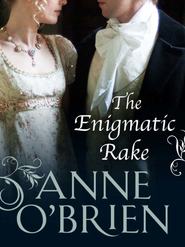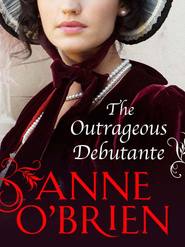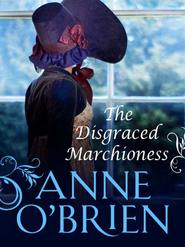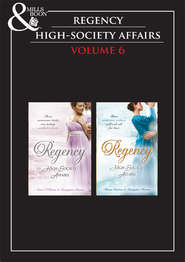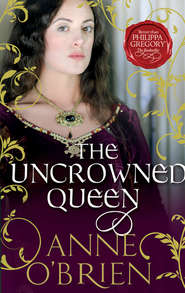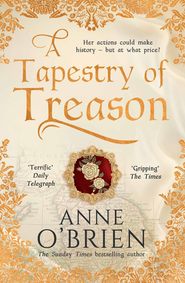По всем вопросам обращайтесь на: info@litportal.ru
(©) 2003-2025.
✖
Virgin Widow
Настройки чтения
Размер шрифта
Высота строк
Поля
And what did I give to Richard Plantagenet? What would I, a ten-year-old girl, give to a prince who had everything, whose brother was King of England? With many doubts and some maternal advice I plied a needle. My mother said it would be good practice and Richard would be too kind to refuse my offering, however it turned out. I scowled at the implication, but stitched industriously. I stitched through the autumn months when the days grew short and I had to squint in candlelight to make for him an undershirt in fine linen, to fit under a light metal-and-velvet brigandine that was a present from his brother and his favourite garment. A mundane choice of gift from me, but I turned it into an object of fantasy by embroidering Richard’s heraldic motifs on the breast in silk thread and a few leftover strands of gold. A white rose for the house of York. The Sun in Splendour that his brother had adopted for the Yorkist emblem after the battle of Mortimer’s Cross when the miracle of the three suns appeared together in the heavens. And for Richard himself, his own device of a white boar. I was not displeased with the result. The rays of the sun were haphazard. Isabel scoffed that the boar had more of a resemblance to the sheep on the hills beyond Middleham. But my mother declared it more than passable and I presented it with all the pride of my hard labours.
Richard accepted it as if it were the most costly garment from the fashion-conscious Court of Burgundy. He did not remark on the less-than-even stitches as Isabel had. Nor did he laugh at my woeful depiction of the boar.
‘It is exactly what I could wish for.’
I blushed with pride. I know he wore it, even when much washed and frayed at cuff and neck and most of the embroidery long gone.
I might have decided that I wanted Richard Plantagenet, but I did not love him. Sometimes I hated him, and he me with equal virulence, although much of the tension between us was of my own making. As I grew I struggled with conflicting emotions that drove me to be capricious with him.
Richard and his horse had fallen heavily in a bout in the tilt yard and, mount limping, he had been dispatched to the stables. I had been looking for someone to annoy and here, on that particular morning, was the perfect target. I had no pity. He was dishevelled and sweaty, one sleeve of his leather jacket ripped almost away at the shoulder seam. Favouring one shoulder with a heavy wince of pain, he hissed between his teeth as he moved and stretched about his task. There was a raw graze along one cheekbone; his hair looked as if it had not seen a comb for days. In the dusty gloom of the stall he spoke with soft words to the restive horse, running his hand down a foreleg. Beside him on a bench was the makings of a hot poultice, steaming and aromatic, and a roll of stalwart bandaging. The horse shifted uneasily. I could see the white of its eye as it whickered and jibbed when Richard touched a sore spot. With long strokes, completely absorbed in his task so that he was unaware of my presence, he began to apply the hot mess, the remedy for all equine ills according to Master Sutton, the Earl’s head groom. He worked smoothly, gently, despite his own discomfort. I saw that his horse’s well-being came before his own ills, but I was not in the mood to admit to being impressed. I came to stand behind him.
‘What are you doing?’
‘As you see.’
He did not turn his head, or register my presence in any other way, and the answer did not please me. It had been a bad morning and I was in disgrace. Out of sorts since the moment I was roused from my bed, I was sullen and dull at my lessons. So I had to repeat them, but was even more uncooperative when Isabel had been released to freedom. Since Lady Masham had obviously prattled to my mother about my sins, the Countess sent me to the kitchens as punishment, to help in the making of candles for the household use. It was a fit task for a child who would not mind her lessons and was rude to her governess. Some practical work would soon set me to rights.
Isabel smirked. Francis Lovell laughed and refused to commiserate so, fingers burnt from hot tallow and a further sharp reprimand from the cook for my careless dipping of the long candles, I suppose I was out for blood at the short reply from Richard Plantagenet. I did not like to be ignored. I needed to wound and hurt.
‘Did you fall?’
‘Go away.’
I was not used to being spoken to like this, particularly not by a henchman, Duke of Gloucester, royal prince or not. ‘I will not. These are more my stables than yours! I suppose you were clumsy and caused the horse to fall.’
He looked up over his shoulder at me. Squinted at me as I stood outlined by light in the doorway. Then back to the task in hand. ‘I suppose I was.’
I had seen the pain and anxiety in his face, but I was not moved to show compassion. Why should I be the only occupant of the castle to suffer? ‘It will probably be crippled, poor thing. Not worth the keeping.’
‘It’s only a bad sprain. It will heal.’
‘It could be broken. See how the animal does not wish to put its foot down. My father has had horses destroyed for less.’
‘What do you know? Go away. You’re nothing but a nuisance.’
‘And you are changeling!’ Isabel was not the only one to listen to servants’ gossip. I had a ready store of disreputable information and, to my later shame, chose this moment to display it.
For a little time, to my disappointment, Richard did not react. He finished strapping the leg, tucked in the ends neatly, before straightening whilst I waited in the taut silence. As he drew himself to his full height I had to look up. I had not realised how tall he had grown over the weeks since his fourteenth birthday. His expression was not pleasant, his cheekbones stark beneath tight skin, and his dark eyes held mine as fierce as the talons of a hawk would hold down a rabbit before ripping it apart.
‘What did you say?’
I swallowed, but would not retreat even though common sense warned me that I should. Now I had all his attention, for good or ill. I stared back.
‘They say that you’re a changeling. That yours was an unnatural birth. That you came into this world with black hair to your shoulders, like an animal, and all your teeth already formed.’
‘Is that all?’ Undoubtedly a sneer. ‘What else do they say?’
I swallowed. Well, I would say it. ‘That you’re not well formed as a man should be. That you’ll never take to the field as a good soldier.’
‘And am I? You tell me what gossip says. What do you say?’
At the stern demand for truth rather than conjecture, I could not answer.
‘Why do you not answer? What do you see, Lady Anne Neville, from your self-righteous and selfappointed position of spreader of poisonous gossip? Am I such a monstrosity?’
I kept my chin high. ‘No.’
‘Why should I be a changeling?’ he demanded as if he had not heard my denial. ‘Because I do not bear the same physical appearance as my brother the King? The long bones and fair hair, like my brother Clarence or my sister the Lady Margaret? My dark hair is from the Neville breeding of my mother, Duchess Cecily. As for teeth I do not know, but I’m neither misbegotten nor a changeling.’
So he had heard the gossip too. Of course he would. And my repeating of it as an accusation had hurt him when his emotions were most compromised by his horse’s injury. I was undoubtedly in the wrong. The guilt smote heavily against my insensitive heart, a hammer blow to an anvil.
‘I did not think—’
‘No, you did not.’ There was no softening, and it struck me that he would be a dangerous enemy to have against you. Usually polite beyond measure, now he did not guard his words. ‘You should be ashamed of yourself to so slander a guest in your household. I think your mother the Countess would beat you if she knew.’
So did I.
‘I did not mean—’
‘Yes, you did. You would repeat what you heard, common tattle without foundation, as any kitchen wench might after a cup of ale. You’re no better than any one of our Lancastrian enemies who would use whatever means to blacken our name.’
He was wrong. I was not so deliberately vindictive, intent on destruction. Nor was I his enemy. Only childishly cruel with my words, demanding attention. Although perhaps there was little difference in the outcome. My attempt at silent self-justification did not make me feel any better.
‘I am sorry.’
‘So you should be.’
‘Forgive me.’
‘Of course.’ Now he withdrew into himself, face impassive, eyes flat. ‘As I must forgive a child who does not consider the repercussions of her taunts.’ He turned from me, brushing me off. But I could see his tense shoulders as he began once more to stroke the horse. Gentle hands for his injured animal even when furious with me. I would have given anything to take back those words. Perhaps I had lost his friendship for ever over a moment’s stupidity. I did not know what to do, but I could not leave it like this. Carefully I walked to his side and reached up to caress the animal’s neck.
‘He will be well,’ I assured in a small voice. I tried hard to prevent it from catching. ‘I only said it to hurt you. Master Sutton’s remedy is very good. My father says there’s none better.’ I stared at his unresponsive shoulders, willing him to turn and make it easy for me, but he didn’t. I took a breath. ‘I too had dark hair when I was born, and a lot of it.’
Richard did not reply, but ran his fingers through the animal’s tangled mane, teasing out the knots.
‘I don’t think I had my teeth. My nurse says I cried and fretted when my gums were sore.’
Nothing! He did not even bother to tell me to go away. Well, I would show him.
I lifted the embroidered fillet from my head and pulled off the linen veil, dropping them both carelessly on the straw. Then unpinned my bound and braided hair without compunction, a lengthy business undertaken every morning by Bessie. Shook it out so that it lay limply against my cheeks.
‘See. I too look nothing like my mother or my sister.’ I shook it again to loosen the tight weaving and my hair fell long and straight, past my shoulders, as dark as his.
‘No, you don’t.’ At least he was looking at me again.
‘Perhaps we are both changelings.’
‘Perhaps.’ There was the slightest curve to his mouth, but still nothing that could be called a smile. ‘Sometimes you are the Devil’s own brat.’






